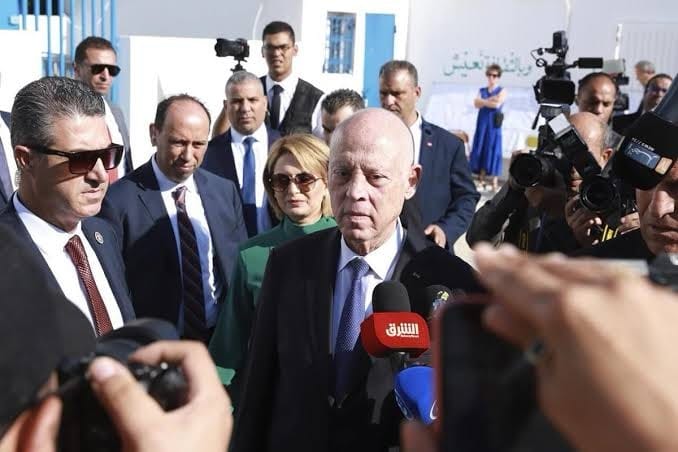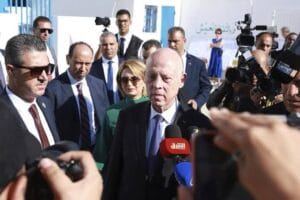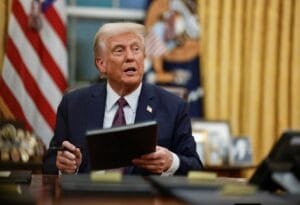Saied secured landslide victory amidst crippling crackdown
Tunisia’s President Kais Saied has secured a commanding victory in the latest election, tightening his hold on power after a first term marked by widespread crackdowns on the opposition.

Tunisia’s President Kais Saied has secured a commanding victory in the latest election, tightening his hold on power after a first term marked by widespread crackdowns on the opposition.
The Independent High Authority for Elections reported on Monday that Saied won 90.7% of the vote, further solidifying his dominance in a nation that once ignited the Arab Spring.

Despite the overwhelming margin of victory, Saied’s win is marred by accusations of authoritarianism and voter disillusionment. The turnout was a meager 28.8%, a sharp contrast to the higher engagement in Tunisia’s earlier post-Arab Spring elections, raising concerns about widespread apathy in the North African nation.
Saied’s campaign was buoyed by the imprisonment of key opponents, many of whom were barred from running. Among them, businessman Ayachi Zammel, who garnered just 7.4% of the vote, spent much of the campaign behind bars due to election-related charges. Critics have decried the election as a sham, with opposition parties boycotting the vote, calling it a façade of democracy amid growing repression.
“We’re going to cleanse the country of all the corrupt and schemers,” Saied declared in a defiant speech at his campaign headquarters. He vowed to shield Tunisia from both foreign and domestic threats, a message that alarmed many of his detractors.
Sghayer Zakraoui, a law professor at the University of Tunis, warned that Saied’s leadership echoed the authoritarianism of former President Zine El Abidine Ben Ali, whose 23-year rule ended in the Arab Spring uprisings. “The absolute power of a single man who places himself above everyone else,” Zakraoui said, is now a hallmark of Tunisian politics.
Saied’s leadership, once a symbol of hope when he was first elected in 2019 as a political outsider promising reform, has shifted Tunisia towards increasing authoritarianism. In 2021, he declared a state of emergency, suspended parliament, and rewrote the constitution to consolidate executive power. Although Tunisians approved the new constitution in a referendum, it came at the cost of further disillusionment with the democratic process, with turnout at a historic low.
Also Read:SUNY, Wadsworth Center partner to launch pioneering global health platform
Over the past two years, repression has intensified. Authorities have imprisoned political figures across the spectrum, including right-wing leader Abir Moussi and Rached Ghannouchi, co-founder of the Islamist Ennahda party. Journalists, activists, and even sub-Saharan migrants have faced arrest under laws critics claim are used to stifle dissent.
“The authorities seemed to see subversion everywhere,” said Michael Ayari, a senior analyst at the International Crisis Group, highlighting the scale of Saied’s crackdown. With many opponents silenced or jailed, the election commission—now under the president’s control—approved just three candidates to run, raising questions about the legitimacy of the race.
Internationally, concerns are growing. The European Union, which relies on Tunisia to help manage migration across the Mediterranean, expressed alarm over the integrity of the election process. As Tunisia’s democracy appears increasingly fragile, Saied’s victory may have cemented his power, but it has done little to empower the country he leads.
Amid the celebrations in the capital, the sense of disillusionment was palpable. “It’s possible that after 20 years our kids will protest on Avenue Habib Bourguiba to tell him to get out,” said Amri Sofien, a freelance filmmaker. “There is no hope in this country.”















